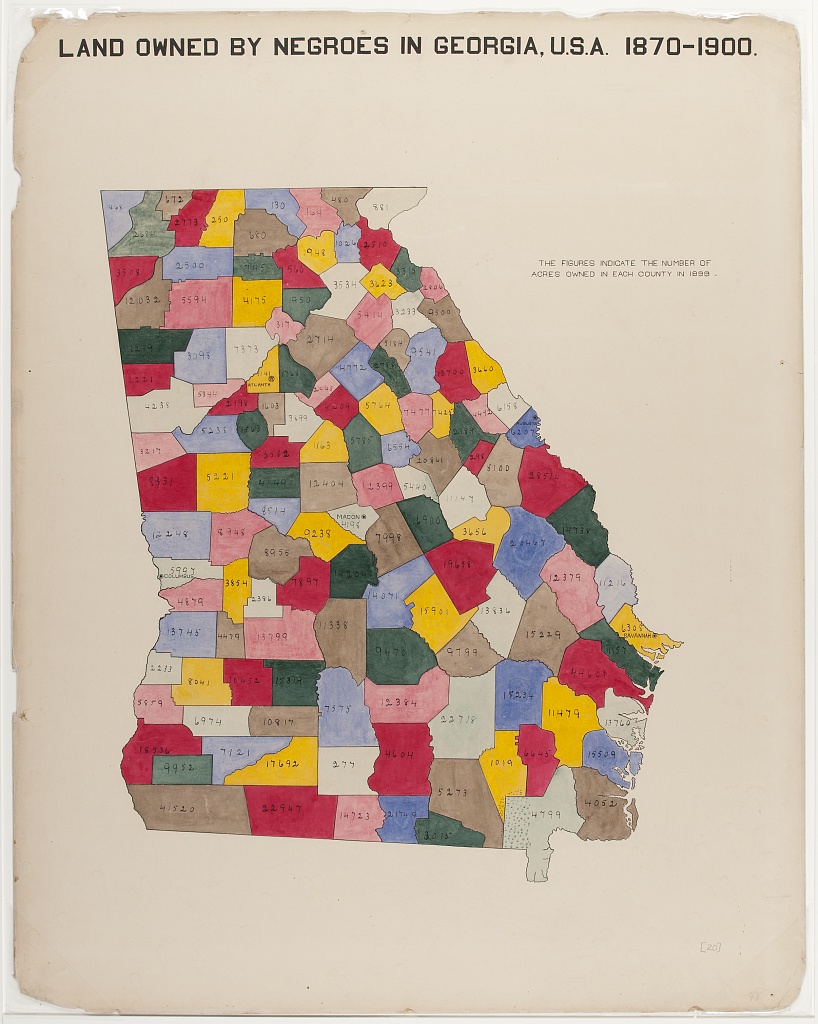Government is the backbone of agriculture in the U.S. but relies on subsidies and support, more so than any other nation, he said. When a farmer operates on a smaller acreage or has inherited property, it becomes more difficult to access that support. The barrier to access is often discrimination, Blanding said.
“It might be because of discrimination, and it might be because they don’t have what the traditional banker is looking for in terms of the right kind of collateral or the right kind of character, or whatever they’re looking for,” he said.
Cooperatives provide a vehicle for farmers to overcome these barriers, allowing them to aggregate and provide credit through credit unions or through access to more stable, larger markets. Cooperatives also provide instruction and support to confront these challenges.
Florida Agriculture Commissioner Adam Putnam is touting the role he played in what’s being hailed as the largest land transfer ever from the federal government to a historically black college or university.
“I’m proud to be writing the next chapter of the history of this university, thanks to your President’s [Elmira Mangum] leadership, with the largest transfer in the history of the United States to FAMU,” said Putnam, speaking at Florida A and M University’s recent spring commencement.
More than 3,800 acres of land and 19 buildings in Brooksville, Florida were transferred today to Florida A&M University from the U.S. Department of Agriculture.
The transaction is one of the largest single land transfers to a historically black land-grant university, according to a release from the USDA.
The land and facilities were used as the USDA Subtropical Agricultural and Research Station from 1929 to 2012.
The property will allow FAMU to expand its research in subtropical fruits and animals and do research significant to Central and South America and the Caribbean.
“We are grateful to the USDA for entrusting us with this land,” FAMU President Mangum said. “It will enable FAMU to develop educational training and developmental programs for new and beginning farmers and ranchers, and to teach them the latest biotechnological innovations and other key initiatives.”
The transfer includes 3,812.5 acres, 2,830 square feet of laboratories, 3,600 square feet of office space, and a variety of other support structures built between 1932 and 1987.
“A new chapter in the history of this land begins as we transfer from Agricultural Research Service to Florida A&M University,” said ARS administrator Chavonda Jacobs-Young. “We look forward to our Florida A&M University colleagues continuing a fine legacy of agricultural research here and teaching the next generation of growers and producers as part of a new Beginning Farmers and Ranchers Program.”
Former interim dean of the Florida Agricultural and Mechanical University (FAMU) College of Education Patricia Green-Powell, Ph.D., has been tapped to lead the Brooksville Agricultural Environmental Research Station (BAERS) located in Brooksville, Florida.
The site formally served as an ancient duck-off for Seminole maroons who called it Chocochatti prior to the Civil War and later as a plantation known as Chinsegut Hill Plantation.
“I am overjoyed about leading the development of the FAMU Brooksville Agricultural Environmental Research Station,” Green-Powell said. “This station will create opportunities to not only preserve our 1890 land-grant identity, but it will maximize the use of existing resources, protect the natural resource base, minimize environmental impact, and maintain sustainability through mentoring in authentic agricultural settings.”
Green-Powell said she is dedicated to ensuring that BAERS is not only beneficial to the FAMU community but also to the communities of Brooksville and surrounding areas.
“I look forward to working with the Brooksville community stakeholders to build ideas and support for BAERS. The Brooksville station will enhance the foundation of innovative service, effective training and clinical experiences, relevant research and inquiry, advanced technology, and meaningful partnerships and collaborations,” Green-Powell said.
Brooksville, Fla. is a subtropical region and home to a myriad of subtropical fruits and animals typically found in Central America, South America, and the Caribbean. Farming and researching on the land will enable the University to boost educational training and development, strengthen its rich tradition of agricultural innovation, and generate opportunities for veterans and jobs for the citizens of the Hernando County area.
The land will be used for agricultural and natural resource research for a period of not less than 25 years, to support and enhance agriculture research and technology transfer to farmers and local communities, including small farmers, minority farmers, Native Americans, and beginning ranchers.
President Mangum said the research possibilities at the new research station in Brooksville are endless.
“This property provides the University with a unique opportunity to develop not only innovative solutions to the world’s food production, food safety, and food security problems but also serves as a vehicle to promote sustainable farming and economic development,” Mangum said. “Dr. Green-Powell and the Committee will play a vital role in helping the University to explore a full range of innovative and creative options to accomplish these objectives.”
In an effort to maximize the success of the historic acquisition of the Brooksville research property, President Mangum formed the Advisory Planning Committee. The group is comprised of established researchers, community leaders, state and local officials, higher education trailblazers, and distinguished alumni.
As interim vice president, Green-Powell will work with the Committee to ensure the sustained success of BAERS.
Committee members include:
• Monica Rainge, state coordinator, Federation of Southern Cooperatives – Land Assistance Fund (committee chair)
• Ray Mobley, Ph.D., former associate professor and coordinator of Animal Science and Research Programs at FAMU
• Ulysses Glee, Ph.D., FAMU alumnus and managing member of the Fenton Group
• Timothy Beard, Ph.D., FAMU alumnus and president of Pasco-Hernando State College
• Leonard Sossamon, Hernando County administrator
• T. Jennene Norman-Vacha, city manager of Brooksville
• V. Eugene Rooks, former coordinator of research at the University of Florida Institute of Food and Agricultural Science
• Robert Taylor, Ph.D., dean of the FAMU College of Agriculture and Food Sciences, ex-officio member
Few Black Americans had the opportunity to buy land during the 19th century. Numerous political and societal barriers prevented many newly emancipated Black people from purchasing property. The repercussions are still felt today.





